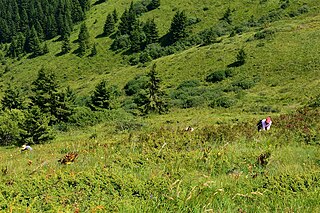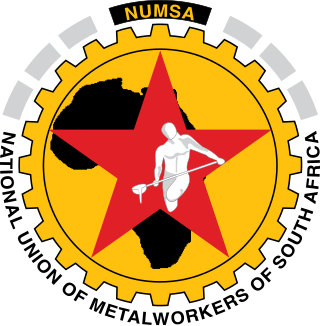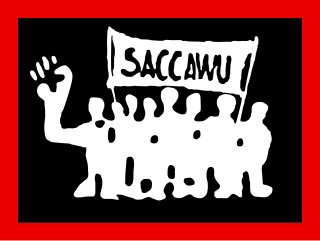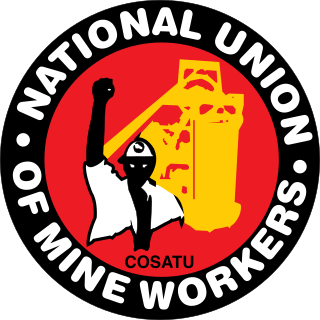Related Research Articles

Temporary work or temporary employment refers to an employment situation where the working arrangement is limited to a certain period of time based on the needs of the employing organization. Temporary employees are sometimes called "contractual", "seasonal", "interim", "casual staff", "outsourcing", "freelance"; or the words may be shortened to "temps". In some instances, temporary, highly skilled professionals refer to themselves as consultants. Increasingly, executive-level positions are also filled with Interim Executives or Fractional Executives.
Freelance, freelancer, or freelance worker, are terms commonly used for a person who is self-employed and not necessarily committed to a particular employer long-term. Freelance workers are sometimes represented by a company or a temporary agency that resells freelance labor to clients; others work independently or use professional associations or websites to get work.

The Congress of South African Trade Unions (COSATU) is a trade union federation in South Africa. It was founded in 1985 and is the largest of the country's three main trade union federations, with 21 affiliated trade unions.
Zwelinzima Vavi is the former general secretary of the Congress of South African Trade Unions (COSATU), and vice-chairperson of the Millennium Labour Council.

The National Union of Metalworkers of South Africa (NUMSA) is the biggest single trade union in South Africa with more than 338,000 members, and prior to its expulsion on 8 November 2014, the largest affiliate of the Congress of South African Trade Unions (COSATU), the country's largest trade union federation.

The South African Commercial, Catering and Allied Workers Union (SACCAWU) is a trade union representing retail, distribution and hospitality workers in South Africa.

The National Union of Mineworkers (NUM) is a mainly mining industry related trade union, an organisation of workers with common goals through organised labour, in South Africa. With a membership of 300,000 as of 2014, it is the largest affiliate of the Congress of South African Trade Unions (COSATU).
Trade unions in South Africa has a history dating back to the 1880s. From the beginning unions could be viewed as a reflection of the racial disunity of the country, with the earliest unions being predominantly for white workers. Through the turbulent years of 1948–1991 trade unions played an important part in developing political and economic resistance, and eventually were one of the driving forces in realising the transition to an inclusive democratic government.
In Australia, labour hire is referred to by the legal term of art labour hire arrangement, and refers to the employment practice of an employer supplying its employees to another workplace, for profit.

The Federation of South African Trade Unions (FOSATU) was a trade union federation in South Africa.
The African Mine Workers' Strike was a labour dispute involving mine workers of Witwatersrand in South Africa. It started on 12 August, 1946 and lasted approximately a week. The strike was attacked by police and over the week, at least 1,248 workers were wounded and at least 9 killed.

Ebrahim Patel is a South African cabinet minister, who holds the position of Minister of Trade, Industry and Competition. He previously served as Minister of Economic Development from 2009 to 2019.
In Namibia, the issue of labor hire remains a controversy between the government, unions and labor brokering companies. The ILO categorizes two forms of subcontracting, namely job contracting and labor-only contracting. Most of Namibia’s labor hire companies fall into the second category as they merely supply labor to their clients.
The Western Cape 2012 Farm Workers' strike was a wave of strikes and protests by agricultural workers in the Western Cape from 27 August 2012 to 22 January 2013. The events led to the deaths of 3 workers, R160 million in damages as well as a 52% increase in the official minimum wage. The protests mostly took place the towns of De Doorns and Worcester with smaller protests in Ceres, Robertson, Grabouw, Wolseley and Villiersdorp. The main cause of the strikes was low worker pay of R69 per day and high unemployment.

The Workers and Socialist Party (WASP) is a Marxist and Trotskyist political party in South Africa affiliated to International Socialist Alternative.
The South African Railways and Harbours Union was formed by black workers of the South African Railways and Harbours Administration after they had been expelled from the National Union of Railway and Harbour Servants.
The South African Congress of Trade Unions (SACTU) was a national trade union federation in South Africa.
Labour hire is a form of employment in which an employer directs their de jure employees to perform work at an external workplace, belonging to a client of the legal employer.
The Hotel and Restaurant Workers' Union (HARWU) was a trade union representing hospitality workers in South Africa.

The Agricultural Food and Allied Democratic Workers Union (AFADWU) is a trade union representing food processing workers in South Africa.
References
- ↑ Umkhonto Labour Holdings. 2010. The difference between a Labour Broker and a Recruitment Agency. Archived 2012-04-08 at the Wayback Machine Retrieved 26 March 2012
- ↑ Dryk Financial Services. 2010. The Definition of a Labour Broker. Retrieved 26 March 2012
- ↑ Polity.org.za. 2009. Labour brokers under threat. Retrieved 26 March 2012
- ↑ Congress of South African Trade Unions. 2012. COSATU and NACTU memorandum on labour brokering. Retrieved 26 March 2012
- ↑ Business Day. 2012. Thousands on strike as Cosatu lists demands. Retrieved 26 March 2012
- ↑ Independent Online. 2012. Labour broking ‘is here to stay’. Retrieved 26 March 2012
